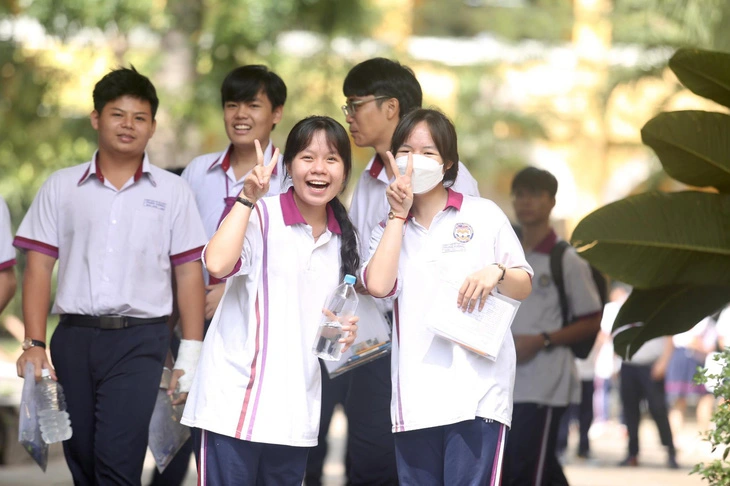Vietnam understands the value of education and Vietnamese children experience one of the world’s best schooling systems, The Economist, a famous British magazine, wrote in a recent article.
Vietnam’s GDP per capita is currently only US$3,760, lower than that of neighboring countries such as Malaysia and Thailand, but Vietnamese children “go through one of the best schooling systems in the world,” a status reflected in outstanding performances in international assessments of reading, math, and science, according to the article 'Why are Vietnam’s schools so good?'
Citing the latest data from the World Bank, the author said in terms of aggregate learning scores, Vietnamese students not only outperform their counterparts in Malaysia and Thailand but also those from the UK and Canada, countries more than six times richer.
In Vietnam, moreover, student scores do not exhibit the scale of gender and regional inequality, a problem so common in other countries, according to the article.
According to the magazine, the secret to the success of Vietnam’s education lies in the classroom: its children learn more at school, especially in the early years.
The article cited a study in 2020, by Associate Professor Abhijeet Singh of the Stockholm School of Economics (Sweden), which gauged the greater productivity of Vietnam’s schools by examining data from identical tests taken by students in Ethiopia, India, Peru, and Vietnam.
Accordingly, he found that Vietnamese children between the ages of five and eight achieved better results.
“One more year of education in Vietnam increases the probability that a child can solve a simple multiplication problem by 21 percentage points; in India the uplift is six points,” he explained.
Unlike those in other poor countries, Vietnamese schools have improved over time, the article wrote.
The author cited a study published in 2022 by U.S. researchers as saying that in 56 of 87 developing countries the quality of education had deteriorated since the 1960s, while Vietnam is among “a small minority of countries where schools have consistently bucked this trend.”
The most significant reason is the calibre of Vietnamese teachers, the article wrote, explaining that they are not necessarily better qualified but they are “simply more effective at teaching.”
Another study comparing Indian with Vietnamese students attributes much of the difference in scores in mathematical tests to a teaching quality gap, the article said.
“Vietnam’s teachers do their job well because they are well-managed. They receive frequent training and are given the freedom to make classes more engaging,” the author pointed out.
In order to tackle regional inequality, it noted, teachers assigned to remote areas are paid more than usual, and most importantly, teacher assessment is based on their students’ performance: those whose students do well are honored with prestigious "teacher excellence" titles.
Provinces are required to spend 20 percent of their budgets on education, which has helped regional equity, the author wrote, adding that the Communist Party of Vietnam’s due attention also ensures the update of curriculums and teaching standards.
In addition, Vietnamese society traditionally attaches great importance to education, the article cited Ngo Quang Vinh, a social-sector officer at the Asian Development Bank, who said even poorer parents try their best to invest in their children’s studies.
In large cities, many families look for schools with good teachers for their children to enroll, Vinh added.
“All this has reaped rich rewards. As schools have improved, so has Vietnam’s economy,” the article commented.
Like us on Facebook or follow us on Twitter to get the latest news about Vietnam!


















































